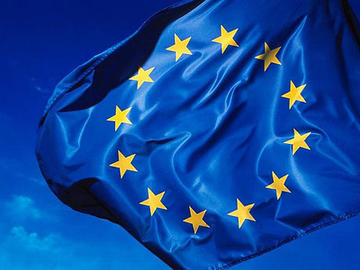
The new EU Guidelines on Freedom of Expression online and offline were generally welcomed, but also criticized by some over what they saw as an important omission
Last week, the Council of the European Union adopted the guidelines, whose general aim, it said, was to "address unjustified restrictions on freedom of expression, promote media freedom and provide valuable guidance to EU officials and staff across the globe".
It also vowed to make full use of the diplomatic and financial tools the EU has available, as well to continue cooperating with the Council of Europe, the OSCE and other regional organisations in the pursuit of that goal.
The 28-page EU Guidelines on Freedom of Expression online and offline lists six priority areas of action, including combating violence, persecution, harassment and intimidation of individuals, including journalists and other media actors; promoting laws and practices protecting freedom of opinion and expression; and promoting media freedom and pluralism. The other three focus on the promotion of human rights in cyberspace and other information and communication technologies, companies' best practices, and legal changes and practices strengthening data protection and privacy.
"The EU attaches the highest priority to the safety of journalists and other media actors," the document reads, adding that the 28-nation bloc would "take all appropriate steps to ensure the protection of journalists, both in terms of preventive measures and by urging effective investigations when violations occur".
Among the various steps the EU would take in the combat against violence and other forms of violation of freedom of expression against journalists and other individuals, it would "encourage international trial observation to ensure the follow up on cases of violence and promote the fight against impunity".
Stressing that an independent and pluralistic media environment is essential to to the effective of operation of a democratic society, the EU listed encouraging free and pluralistic reporting on elections as well as active monitoring by independent organisations among the actions it would take in the are of media freedom and pluralism.
The bloc also emphasized that all countries seeking to join the EU "must demonstrate a credible commitment to promoting freedom of expression by addressing all relevant aspects (legal, regulatory, judicial, market related, etc.) where obstacles to freedom of expression persist".
While welcoming the adoption of the Guidelines, London-based international watchdog on freedom of expression Index on Censorship and eight other organisations issued a joint statement on Wednesday (May 21st), criticising the bloc over some shortcomings in this connection.
"It is, in particular, very problematical that the Guidelines fail to recognise the right of the public to access information held by public authorities as an element of the right to freedom expression and as an operational priority for the EU," they said. "This omission seriously undermines the effectiveness of the Guidelines."
The group also criticized the EU for chosing to adopt a document of such importance after "only limited and essentially internal consultations", instead of conducting "an open and meaningful process of consultation before it was finalised".
Therefore, they urged the EU to either review the Guidelines, or to adopt another set of guidelines focusing specifically on the promotion of the right to information as an element of freedom of expression.
Questa pubblicazione è stata prodotta con il contributo dell'Unione Europea. La responsabilità sui contenuti di questa pubblicazione è di Osservatorio Balcani e Caucaso e non riflette in alcun modo l'opinione dell'Unione Europea. Vai alla pagina del progetto Safety Net for European Journalists. A Transnational Support Network for Media Freedom in Italy and South-east Europe.

 EU freedom of expression guidelines welcomed, but criticised too
EU freedom of expression guidelines welcomed, but criticised too




 Tutti i contenuti disponibili sul sito di Osservatorio Balcani e Caucaso sono distribuiti con licenza
Tutti i contenuti disponibili sul sito di Osservatorio Balcani e Caucaso sono distribuiti con licenza 